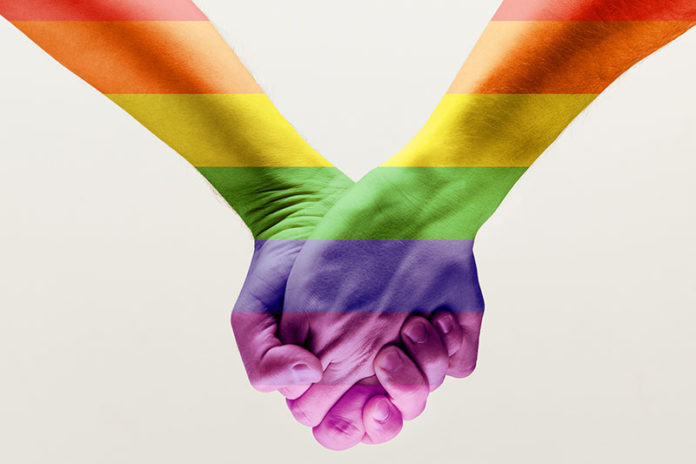America is in a free speech crisis. The latest data from the Cato Institute demonstrates that Americans increasingly value free speech less when it involves sensitive issues or tightly held political beliefs, and we’re seeing that mentality play out with the LGBTQ+ community in Seattle. Earlier in January, after several meetings and complaints last year, the Seattle Public Library decided it will allow controversial feminist group Women’s Liberation Front (WoLF) to host an event at its facilities on February 1. Prior to this decision, several LGBTQ+ organizations lobbied the library to cancel the event, calling WoLF “anti-trans” and insinuating that this would make trans people feel unsafe.
Simply put, some LGBTQ+ activist groups don’t want opinions other than their own to be heard in the public square. But peaceful discussion of ideas (even offensive ones) is a fundamental American right, and LGBTQ+ groups shouldn’t stomp on that.
WoLF’s event, titled “Fighting the New Misogyny: A Feminist Critique of Gender Identity,” will focus on articulating “powerful arguments for sex-based women’s rights.” In response to the event, The Gender Justice League, one of the organizations that opposed WoLF’s talk, claimed that using the library to promote WoLF’s ideology creates a “hostile environment” for trans individuals and is “unacceptable.” The outcry is understandable: WoLF members don’t recognize/accept trans folks’ gender identity and believe that “trans women being categorized as women poses a physical and legal threat to women.”
I’ll be the first to say that WoLF’s ideology is ill-informed and repugnant. No one deserves criticism, disrespect or to be labeled as a “threat” simply for being who they are. As a gay black man myself, I’ve felt the sting of anti-LGBTQ+ and racist rhetoric. It was painful, but, their right to say it should remain untouched, so long as they’re not inciting harm against me. Same here: WoLF is not advocating for violence against anyone. They’re simply stating their case peacefully and civilly in a public forum—and LGBTQ+ activists can do the same.
That’s the beauty of free speech.
While many LGBTQ+ activists may feel threatened by rhetoric that targets their identities, there’s indeed a huge difference between critique and hostility/inciting violence. We don’t grow as individuals, or Americans, for that matter, by shuttering peaceful, critical discussion from our intellectual pursuits. Even if certain speech is offensive (whatever that means), how can you determine that without first listening to it? It’s a self-defeating practice. Also, imagine if the founders had shied away from controversy under the reign of King George, or if LGBTQ+ protestors fighting for legal equality were more concerned with being offensive than being morally correct. Every benefit we reap from their actions would never have reached us otherwise. It was all because they spoke freely and openly.
We’d be remiss to tarnish those legacies of courage by not adhering to their example. Being faithfully committed to protecting free speech means sometimes protecting speech we don’t like, and that’s ok.
Furthermore, this shut-them-up strategy highlights the problem with the concept of “hate speech.” All values are a matter of opinion, which naturally causes conflict. It’s very dangerous to situate speech in a hierarchy when what is considered “hateful” or “rude” is sometimes based on hyperbole or one person’s perspective, not fact. We should all strive for respectful discourse in our private lives and enforce those expectations through civility and vibrant debate—not by shutting up our foes.
And Seattle has already shown that free speech, not censorship, has resulted in great wins for LGBTQ+ Americans. Seattle ranks 5th in the nation for LGBTQ+ populations. The general public’s minds are very clearly convinced of LGBTQ+ arguments, because activists have used their voices to state their peace in pop culture, with pride parades, acceptance seminars, and so forth.
As gay people in America, we’ve endured centuries of trouble by lifting our voices against injustice when our opinions and lifestyles were viewed as taboo and reprehensible. And we must continue to cast the net wide when protecting speech, because who knows when the court of public opinion will shift next? Your views could be the next ones to be canceled.
Christian Watson is a political writer based out of Georgia and a Young Voices Advocate. He can be found on Twitter at @OfficialCWatson.



























